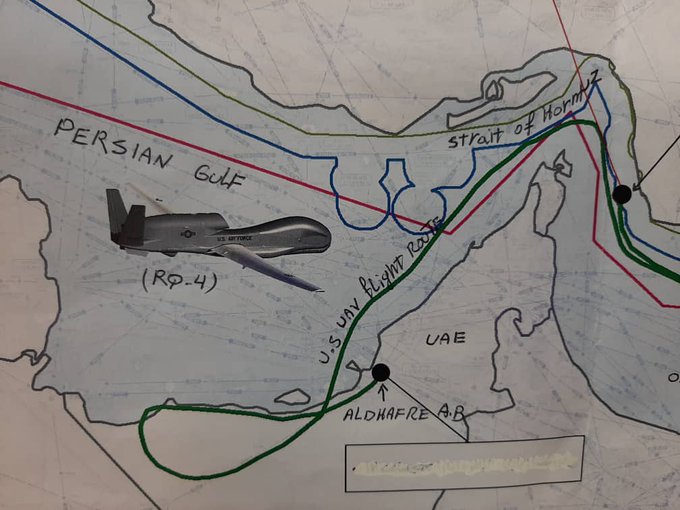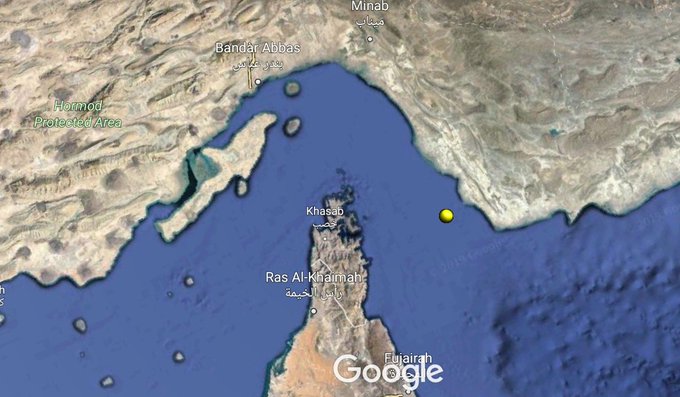
Twenty-nineteen could best be described as a year when Donald Trump’s foreign policy unraveled on so many fronts. It became ever more erratic, one-sided and personalized, changing with the US president’s mood swings. The crisis, as many would call it, has been a long time in the making, and the implications will surely cast a long shadow over the new decade.

Trump, a self-proclaimed deal maker, is floundering as much internationally as he is domestically. The US, on his watch, arguably has less leverage with its allies than it has had at any time in modern history. Trump’s foreign policies—from the Middle East and North Korea to Venezuela— have largely failed. Even in areas where the US traditionally has enjoyed good standing, like the European Union and NATO, many now view the administration’s conduct as reckless and disorganized.

The year 2019 was marked by conflicts large and small and the US constantly got rebuked by friends and foes alike. In his third year in office, Trump continued to add more failures and controversies to his foreign policy scoreboard. The following are the most glaring examples:
Coup plot in Venezuela
The Trump administration clearly made a miscalculation about what it could possibly achieve in Venezuela. In January, it recognized Venezuelan opposition leader Juan Guaido as the nation’s interim president and declared the 2018 reelection of President Nicolas Maduro illegitimate. In the following months, the White House imposed more sanctions, including an oil embargo, and kept the military option on the table, in an effort to oust the Maduro government. Trump, meanwhile, personally called on Maduro to give up power.

US President Donald Trump has urged the Venezuelan military to end its support for President Nicolas Maduro and his government.
Despite the Trump administration’s pressure campaign, Venezuela’s military stayed loyal to Maduro. The country’s economy has begun to improve. Maduro remains in power, denouncing what he has called a US-inspired coup plot against his government. Experts believe it is time the White House admitted its policy failure in Venezuela and abandoned a failing venture in the Latin American country.
Costly trade war
Trump’s foreign policy proved costly not only to the US economy but also to the world economy in 2019. The trade war with China dominated headlines this year, weighing down global growth. A comprehensive trade deal with China repeatedly stalled this year, despite Trump promising, over and over again, that an agreement was imminent. In May, the trade talks between the two largest economies broke down and the US increased tariffs on $200 billion worth of Chinese goods from 10 to 25 percent.
China retaliated in kind in June, raising tariffs on $60 billion worth of US goods. In the following months, the US labeled China a currency manipulator and threatened to halt all private investment in the country. After 18 months of tit-for-tat tariff increases, Beijing and Washington reached a “phase one” agreement in December to start deescalating. However, the 25 percent US duties on Chinese imports remain in place and Beijing continues to stick to its demand that any lasting deal must start with Washington removing its punitive tariffs.
Tensions with Iran
Tensions between the US and Iran reached a boiling point in June after Iran shut down an intruding American drone. Trump subsequently took to Twitter to claim he had just ordered, but then called off, a strike on Iranian targets.
Javad Zarif
✔@JZarif
The US wages #EconomicTerrorism on Iran, has conducted covert action against us & now encroaches on our territory.
We don’t seek war, but will zealously defend our skies, land & waters.
We’ll take this new aggression to #UN & show that the US is lying about international waters
At 00:14 US drone took off from UAE in stealth mode & violated Iranian airspace. It was targeted at 04:05 at the coordinates (25°59’43″N 57°02’25″E) near Kouh-e Mobarak.
We’ve retrieved sections of the US military drone in OUR territorial waters where it was shot down.
Afterwards, the Trump administration deployed a strike group to the Persian Gulf over what it alleged to be Iranian threats against US forces and commercial shipping in the region. The US also announced its intention to create a maritime coalition purportedly to patrol the Persian Gulf. However, out of more than 60 countries invited to join the coalition, only a handful accepted the US invitation.
In September, the US further tightened sanctions on Iran, targeting the country’s central bank. The new bans followed attacks on Saudi oil facilities that Riyadh and Washington blamed on Iran. Tehran rejected the accusation.
“US war on Iran by other means is all about wanting to crush its economy, isolate the country, immiserate its people, and starve them into submission,” writes Stephen Lendman.
Trump’s policy on Iran has been defined by military threats and economic sanctions. He adopted a hostile approach from day one. However, the so-called maximum pressure campaign has only backfired. Trump, who unilaterally withdrew from a historic nuclear deal with Iran in 2018, has said he wants to negotiate a better deal with Tehran, claiming on more than one occasion that Tehran is also ready to negotiate. However, Tehran has made it clear it will not negotiate with the US under pressure and threats.
For a year Iran stayed strictly committed to the nuclear deal, known as the JCPOA, after Washington violated its terms. But Tehran has scaled back its commitments, in four phases, as the European signatories failed to guarantee Iran’s interests out of fear of US sanctions. Meanwhile, the Islamic Republic has taken measures to make the economy and the budget less independent on oil to cushion off the impact of US sanctions.
North Korea standoff
On June 20, Trump became the first sitting US president to ever set foot in North Korea, crossing the Demilitarized Zone for a brief meeting with the country’s leader Kim Jong-un. Since the meeting, relations between Washington and Pyongyang have fluctuated more than ever.
There are signs that global pressure, the US has been building on North Korea, is fracturing. China and Russia have already proposed that the United Nations should ease sanctions on Pyongyang. Displeased with the Trump administration’s refusal to remove sanctions, Pyongyang has resumed its weapons tests after a two-year hiatus. It has also threatened the US with dire consequences if diplomacy fails again.
Ukraine scandal
On September 24, the US House of Representatives launched a formal impeachment inquiry against Trump over his dealings with Ukraine. It stemmed from a phone call with the Ukrainian president in which Trump asked Volodymyr Zelensky to investigate his political rival Joe Biden in exchange for military aid that was being withheld. Trump repeatedly denied any wrongdoing. However, he blatantly invited another foreign country to interfere in US elections by publicly asking China to investigate the Biden family. The scandal has revealed how recklessly Trump has been leading America both at home and aboard.
Public support for Donald Trump’s removal from office is the highest it has ever been, according to a new poll.
Trump was impeached by the House on December 18 over abuse of power and obstruction of Congress. So what is next for Trump? The president is looking forward to his trial in the Republican-controlled Senate, where he is almost certain to be acquitted. Whatever the outcome, Trump will go down in history as the third US president ever to be impeached.
Syria pullout and oil theft
On October 6, President Trump abruptly announced a decision to withdraw all remaining American troops from northeastern Syria, without consulting the Pentagon or US allies. The move cleared the way for Turkey to launch an offensive against US-allied Kurdish forces in the region, which Ankara labels terrorists. Trump responded with sanctions on Turkey, a NATO ally, and threatened to “obliterate” its economy.
A top advisor to Syria
Two weeks later, Trump seemed to have a change of heart, ordering some US troops back in to “secure the oil.” As extracting the resources of another country would constitute pillage, and thus banned under the Fourth Geneva Convention, Pentagon officials attempted to interpret the president’s move as part of a campaign to prevent oil from falling into the hands of Daesh terrorists.
Defending Saudi Arabia, at all costs
Following a September attack on Saudi oil facilities that Riyadh blamed on Iran, Trump sent 3,000 US troops as well as fighter jet squadrons and missile systems to Saudi Arabia. (Tehran has denied it was behind the drone and cruise missile assaults.) Trump’s response was bizarre even by his standards. Not only did he vow to defend Saudi Arabia and its interests in the region, but the president completely deferred to the kingdom to determine how Washington would “proceed” in the matter.
Saudi Arabia oil supply was attacked. There is reason to believe that we know the culprit, are locked and loaded depending on verification, but are waiting to hear from the Kingdom as to who they believe was the cause of this attack, and under what terms we would proceed!
The show of support came months after Trump vetoed bipartisan legislation seeking to end US support for the Saudi-led war of aggression in Yemen. Trump also repeatedly bucked congressional majorities this year to back the Saudi royals on the 2018 killing of dissident journalist Jamal Khashoggi. Trump has more than once said that Saudi Arabia is too valuable a customer of American arms to lose over such matters.
US President Donald Trump praises Saudi Arabia’s Crown Prince Mohammed bin Salman despite his complicity in the killing of journalist Jamal Khashoggi.
Death of al-Baghdadi?
On October 26, Trump announced the death of Daesh leader Abu Bakr al-Baghdadi at the hands of US forces in Syria. Trump boasted that al-Baghdadi was trembling and crying like a dog before he was killed, leaving his defense officials wondering whether the president had made up the details. The announcement sounded like a much-needed victory for a beleaguered president criticized by allies and foes alike. Trump’s victory announcement was a far cry from his acknowledgment during the 2016 campaign that it was the US who created the Daesh terror organization.
Press TV is a 24-hour English language news and documentary network, affiliated with Islamic Republic of Iran Broadcasting (IRIB).
IRIB is state-owned but independent of the Iranian government in its management and is the only legal TV and radio broadcaster inside Iran. IRIB’s head is appointed directly by the supreme leader, Ayatollah Ali Khamenei, and is considered to be close to the country’s conservative political faction. Press TV is headquartered in Tehran with offices and bureaus around the world; including London, Beirut, Damascus, Kabul, and the Gaza Strip.
*All posts on behalf of PressTV are made by Jim W. Dean
ATTENTION READERS
We See The World From All Sides and Want YOU To Be Fully InformedIn fact, intentional disinformation is a disgraceful scourge in media today. So to assuage any possible errant incorrect information posted herein, we strongly encourage you to seek corroboration from other non-VT sources before forming an educated opinion.
About VT - Policies & Disclosures - Comment Policy














